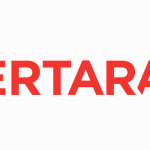A novel AI-based method of screening patients for glaucoma has been developed by scientists at the Nanyang Technological University and clinicians from the Tan Tock Seng Hospital in Singapore.
WHAT IT’S ABOUT
The automated glaucoma screening method was developed in a study, whose findings were published in the peer-reviewed journal Methods.
Two stereo fundus images taken as a pair were collected from each participant patient at TTSH. These images were then combined to form a 3D image. In total, 282 fundus images were tested, including 70 glaucoma cases and 212 healthy cases.
A set of algorithms, consisting of a deep convolutional neural network and an attention-guided network, was used to analyze and differentiate those images with glaucoma from those without.
Want to publish your own articles on DistilINFO Publications?
Send us an email, we will get in touch with you.
The study has shown that the AI method attained 97% accuracy and 95% sensitivity in diagnosing glaucoma. When a single fundus image from each participant was used, the method had a lower sensitivity of 85-85%.
WHY IT MATTERS
Glaucoma is a group of eye diseases that cause damage to the optic nerve, leading to vision loss and blindness. It is often referred to as the “silent thief of sight” as it is usually asymptomatic until later stages. According to a study published in the American Academy of Ophthalmology, the disease is projected to affect 111.8 million people around the world by 2040 from 76 million cases last year.
NTU said in a press statement that their latest diagnosis method developed with TTSH can be potentially used in less developed areas where patients lack access to eye doctors.
Presently, the research team is testing the algorithms on a larger dataset from patients at TTSH. They are also looking to put the algorithms in a mobile phone app to be used as a screening tool in the field.
THE LARGER TREND
Aiming to screen for eye diseases in underserved areas, Samsung has turned older models of its Galaxy smartphone line into fundus cameras under its Galaxy Upcycling program. The refurbished devices use AI to analyze and diagnose images for ophthalmic diseases. These connect to an app that gathers the images and automatically suggests a treatment regimen. The company developed the fundus camera together with the International Agency for the Prevention of Blindness and the Yonsei University Health System in South Korea.
Last month, Johnson & Johnson Vision, the eye health unit of Johnson & Johnson Medical Devices Companies, presented its three-year roadmap to develop an integrated eye health ecosystem in Singapore that focuses on data and digitalization initiatives.
The ecosystem aims to raise the capacity of eye care professionals in providing services; raise Singaporeans’ access to eye care, and enhance knowledge about eye health and vision needs through hyper-personalization of patient care. The company said key initiatives to be implemented include a community eye health e-referral network, an AI-powered eye care service, and telehealth.
ON THE RECORD
“Many glaucoma patients remain undiagnosed in the community, and in developing countries like India, the percentage of undiagnosed cases may be well over 90%. While cases are usually picked up during routine eye checks, population-based screening is challenging due to the specialized and expensive equipment or trained experts required. The process of manually inspecting individual retinal images is also time-consuming and depends on subjective evaluation by experts. Our method of using AI, in contrast, could potentially be more efficient and economical,” said Dr. Leonard Yip, co-author of the study and head of Glaucoma Service at the TTSH’s National Healthcare Group-Eye Institute.
“Through a combination of machine learning techniques, our team has developed a screening model that can diagnose glaucoma from fundus images, removing the need for ophthalmologists to take various clinical measurements (such as internal eye pressure) for diagnosis. The ease of use of our robust automated glaucoma diagnosis approach means that any healthcare practitioner could make use of the system to help in glaucoma screening. This will be especially helpful in geographical areas with less access to ophthalmologists,” Wang Lipo, lead author of the study and an associate professor at the NTU School of Electrical and Electronic Engineering, also commented.
Source: Mobihealthnews








